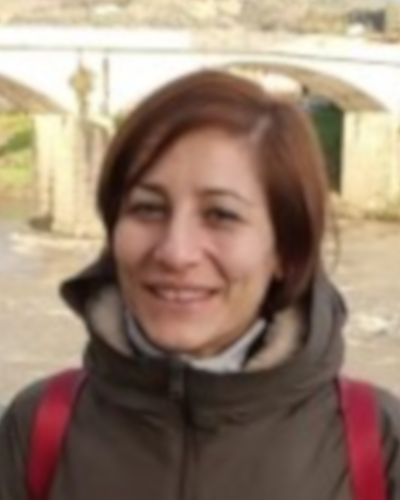SPECIAL SESSION #16
Smart Systems for Operational Forest Monitoring, Automation and Analysis
ORGANIZED BY
Alessio Giovannelli
National Research Council (CNR), Institute of Research on Terrestrial Ecosystems (IRET), Italy
Claudia Cocozza
University of Florence, Department of Agriculture, Food, Environment and Forestry, Italy
Giovanni Carabin
Free University of Bozen-Bolzano, Faculty of Science and Technology, Italy
Stefan Leitner
Free University of Bozen-Bolzano, Faculty of Science and Technology, Italy
Flor Álvarez-Taboada
Universidad de León, Department of Cartographic Engineering, Geodesy and Photogrammetry, Spain
ABSTRACT
Plant level. Nowadays sensor technology is used to analyze tree functionality, namely ecophysiological variables such as sap flux density and stem diameter variation to monitor water use efficiency. Dendrometers and sap flux sensors are known to produce time-series data to automatically identify the activity of the tree at a daily scale. Investigations on relationships between tree functional traits and environmental variables are very important for interpreting the adaptation and mitigation potential of trees under current and future climate change conditions.
Landscape and tree level. Big Data and artificial intelligence are used in forestry at landscape and tree level for forest inventory and growth and forest health monitoring. Satellite imagery, RPA data, 3D point clouds from LiDAR or photogrammetric sensors, proximal sensors and citizen science are common data sources which aim to improve sustainable forest management at different spatial scales. Making these tools operational and ready to use by forest owners and companies is one of the current challenges.
Operational monitoring and mechatronic systems. Mechatronics and automation are constantly increasing their influence also in contexts outside industry. Forestry is one of those sectors that could benefit from new technologies to adapt to climate change effects and globalization, by improving the efficiency and performance of the operations, as well as the products' quality and traceability. Precision forestry technologies involve the automation of operations exploiting stationary or mobile systems, stand-alone or integrated into forestry machinery/equipment, to perform both monitoring and inventory activities as well as site-specific silvicultural and forest utilization operations.
TOPICS
Topics include, but are not limited to:
- Precision forestry;
- Remote sensing for operational forest management;
- Big data and artificial intelligence in forestry;
- Forestry operations mechanization and automation;
- Forestry operational monitoring via mechatronic systems and sensor applications;
- Mechatronic measuring/monitoring systems for precision Forestry.
ABOUT THE ORGANIZERS
Alessio Giovannelli is Senior Researcher at the National Research Council (CNR), Institute of Research on Terrestrial Ecosystems (IRET) and Affiliate Researcher at the Crop Science Research Center (CSRC) of the Scuola Superiore Sant’Anna. He is CNR ‘supporting scientist’ in the European Plant Science Organization (EPSO). His general interest is focused on the impact of climate change on forest and agroforestry ecosystems with particular emphasis on the studies related to stress physiology, mechanisms of acclimatization and adaptation of plants to environmental changes, dendrobiology, xylogenesis, physiology of wood formation. Activities involve monitoring of plant growth and water relations with non-destructive methods (dendrometers, heat pulse), analyses of impact of extreme events on forest stands, traceability and functional characterization of reproductive forest material for site restoration.
Claudia Cocozza is an associate professor at the University of Florence (Italy), Department of Agriculture, Food, Environment and Forestry (DAGRI) in the research field of Forest Ecology. Her scientific interests include plants’ responses, anatomical, biochemical and physiological mechanisms, to environmental constraints, such as water stress and pollutants, studying their effects on plant functions and tree rings. Research activities are performed for the monitoring of tree functional traits and tree responses to the environment through sensor technology. Activities were performed to predict how tree plantations and forest ecosystems respond to future climate changes, it is critical to practical purposes (e.g., irrigation technique, species selection, forest management, etc.) and hinges on a quantitative understanding of the physiological mechanisms governing drought stress.
Giovanni Carabin is an assistant professor in Agricultural, Forestry, and Biosystem Engineering (07/C1 – AGR/09) at the Faculty of Science and Technology of the Free University of Bozen-Bolzano (Itay). His main research activities deal with robotic and mechatronic applications in the agro-forestry field, as well as the study of the safety and stability of agro-forestry machines operating in mountainous environments. He obtained is PhD in Sustainable Energy and Technologies at the Free University of Bozen-Bolzano focusing on the development of advanced techniques for energetic performance enhancement in mechatronic systems. He is member of the Italian Association of Agricultural Engineering/Associazione Italiana di Ingegneria Agraria (AIIA) and the Italian section of the International Federation for the Promotion of Mechanism and Machine Science (IFToMM Italy).
Stefan Leitner obtained a Bachelor’s degree in Mechatronics & Machinery Construction from Management Center Innsbruck, Austria, in 2013. He received Masters’s degrees in Electrical Engineering and Mathematics at Southern Illinois University, United States, in 2016 and 2017, respectively. He is currently pursuing a PhD in Advanced Systems Engineering at the Faculty of Science and Technology of the Free University of Bolzano, researching in the area of energy-efficient and safe design of agro-forestry machinery. His research interests include sensors, electric drive systems, efficiency optimization and applied control especially in connection to steep slope forestry machinery.
Flor Álvarez-Taboada is an assistant professor at the Universidad de León (Spain), Department of Cartographic Engineering, Geodesy and Photogrammetry in the research field of Remote Sensing. She has been a visiting scientist at the Pacific Forestry Centre (Canadian Forest Service, Canada), International Training Centre (The Netherlands) and the Technische Universitat Munchen (Germany). Her research is focused on remote sensing and natural resources monitoring, with special attention to forest health. Currently she studies how to detect and monitor damages in forest ecosystems in near real time and how to implement early warning systems, by using Big Data and artificial intelligence and sources such as satellite imagery, 3D point clouds, IoT and proximal sensors.


















